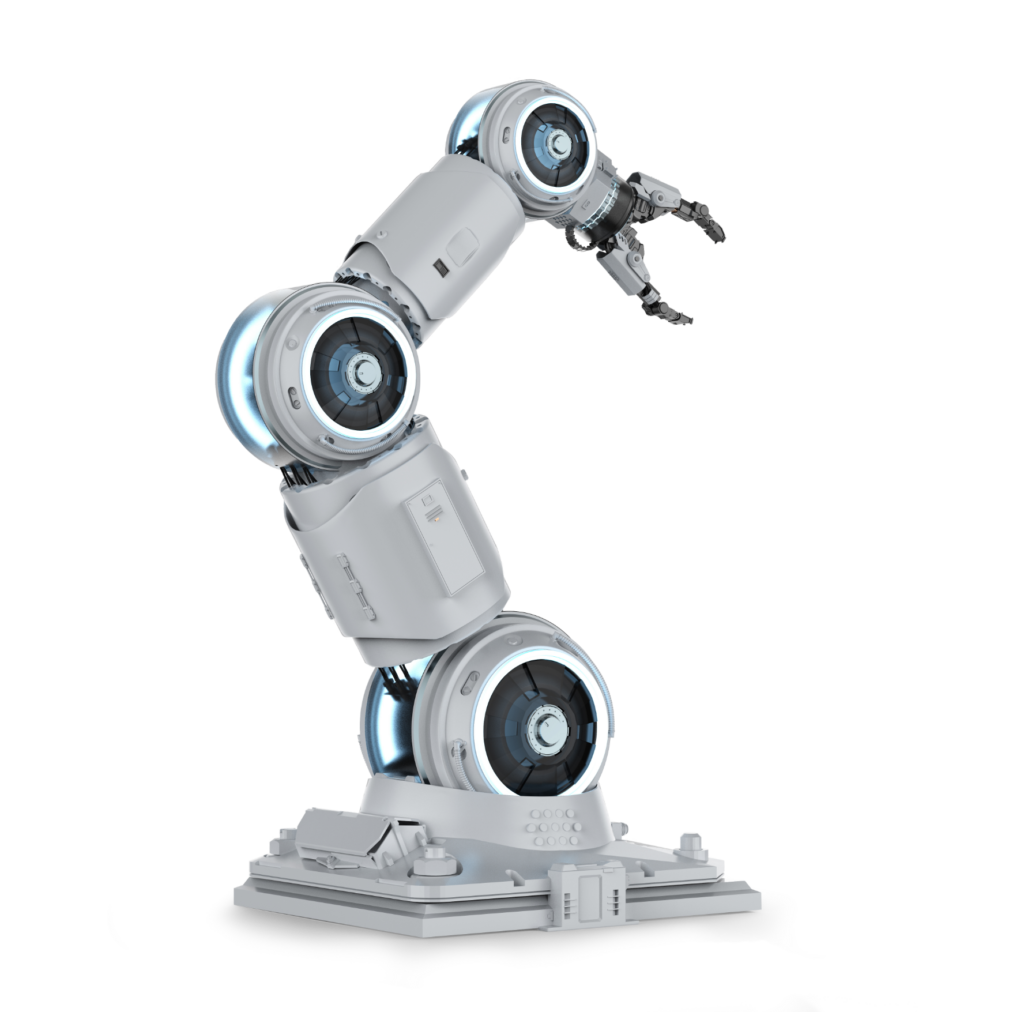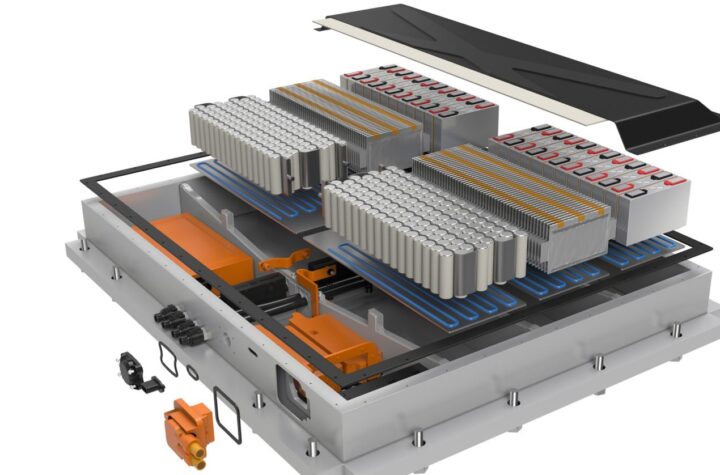
With advancements in artificial intelligence (AI) playing a pivotal role in reshaping manufacturing processes and enhancing product quality, automotive manufacturing stands on the brink of exciting developments
At the forefront of this transformation is SiMa.ai, a leader in AI-driven solutions for the edge. In this exclusive interview, Harald Kröger, Head of Sales and President of Automotive Business at SiMa.ai, discusses the strategic partnership between SiMa.ai and TRUMPF, a global leader in laser technology and industrial machine tools.
Kröger elaborates on how this collaboration is set to revolutionize the automotive manufacturing landscape, particularly in the production of electric vehicles (EVs). By integrating SiMa.ai’s powerful Machine Learning System-on-Chip (MLSoC) and flexible software, Palette, into TRUMPF’s advanced laser systems, the partnership aims to significantly enhance real-time quality inspection during laser welding processes. This integration is expected to boost production efficiency, reduce costs, and ultimately make EVs more affordable for consumers.
The conversation also delves into the unique attributes of SiMa.ai’s technology, highlighting its software-centric approach that allows for seamless integration of machine learning models from various frameworks. Kröger emphasizes the efficiency of their MLSoC, which accelerates the entire production pipeline, ensuring real-time processing at minimal power consumption—a critical requirement for modern manufacturing environments.
Kröger further explores the broader implications of AI in the automotive industry, envisioning a future where AI-enabled real-time production optimizes precision, energy efficiency, and cost reduction. He discusses the challenges in implementing AI in manufacturing and how SiMa.ai’s Palette Edgematic, a no-code ML application platform, addresses these hurdles by enabling rapid deployment and evaluation of machine learning models.
The interview provides valuable insights into how the strategic collaboration between TRUMPF and SiMa.ai is set to drive innovation and efficiency in the automotive industry, paving the way for more sustainable and cost-effective manufacturing solutions.
Follows Automotive Industries interview with Harald Kröger, Head of Sales and President of Automotive Business at SiMa.ai
Automotive Industries: Hi Harald, can you tell us about the strategic importance of the partnership between TRUMPF and SiMa.ai for the automotive industry?
Kröger: Our work will accelerate complex material processing with the help of powerful, compact and energy-efficient AI chips being directly integrated into TRUMPF’s laser systems. Our powerful Machine Learning System-on-Chip (MLSoC)—and flexible software, Palette—alongside TRUMPF’s highest level of process understanding is enabling AI solutions that drive the industry forward.
For the automotive industry, this means a real-time quality inspection for electric vehicles during laser welding processes, increasing both production and efficiency – and ultimately, lowering prices for consumers
Automotive Industries: How will integrating SiMa.ai’s AI chips into TRUMPFs laser systems enhance the production process for EV batteries?
Kröger: By integrating SiMa.ai’s technology into TRUMPFs laser systems, manufacturers will be able to replace separate and complex testing procedures. As a result, battery manufacturers will increase the quality of their production in real time and reduce the reject rate. This makes the production of batteries for electric cars not only more efficient, but also more sustainable.
Automotive Industries: What makes SiMa.ai’s technology uniquely suited to meet the demands of the high-tech manufacturing industry?
Kröger: We’re known as a chip company, but we’ve been software-centric since day one. Our software developer kit allows developers and companies to seamlessly integrate machine learning models from various frameworks without the need for conversion or optimization outside the toolchain. That makes for easy onboarding, but it also allows companies to deploy a diverse array of models developed by separate teams, each using different frameworks or model architectures.
On top of that, we accelerate the entire pipeline, not only the model itself. Usually the performance bottleneck comes from other portions of your applications, so even though your model achieves good performance, the end-to-end solution doesn’t work in real time. With SiMa.ai’s heterogeneous MLSoC and efficient runtime, you achieve real-time processing at the lowest power from the sensor to the output, which is crucial for markets like manufacturing to ensure smooth operations and fast responses as well as meeting size, weight and power (SWaP) requirements.
Between our software and hardware, customers using SiMa.ai get the best AI solutions in minutes—without the hassle of updating systems over a prolonged period of time—and can get the best support for their tasks and as much automation as needed.
Automotive Industries: How do you envision AI transforming the manufacturing processes for electric vehicles in the coming years?
Kröger: As more powerful, compact and energy-efficient AI chips continue to be developed, the manufacturing process for electric vehicles should only become more efficient and sustainable. The rapid acceleration of AI innovation is reshaping how humans can leverage emerging technology – in combination with TRUMPF’s advanced AI software, SiMa.ai’s one platform for all edge AI adjusts to any framework, network, model, sensor or modality. As battery manufacturers are able to increase the quality of their production in real time and reduce the reject rate with AI, the cost of purchasing and maintaining electric cars for consumers will drop.
Automotive Industries: Can you explain the specific benefits of AI-enabled real-time production in terms of precision, energy efficiency, and cost reduction?
Kröger: AI systems can analyze vast amounts of data in real-time, detecting minute variations in production processes that human operators might miss. By optimizing processes in real-time, AI can significantly reduce energy waste and adjust equipment settings based on conditions, ensuring optimal energy use without compromising output quality or quantity. Altogether, these improvements will minimize waste, increase the efficiency of human workers and improve resource utilization across the board.
Automotive Industries: What challenges do you foresee in the implementation of AI in manufacturing, and how is SiMa.ai prepared to address them?
Kröger: Many companies don’t have the resources to train a specialist to add AI/ML to their devices, or their engineers don’t have the time to spend months evaluating and deploying ML applications. This is true in a manufacturing setting as well. We developed Palette Edgematic, a no-code approach to creating, evaluating and fine-tuning ML applications from anywhere in the world, via a simple browser. Palette Edgematic enables a “drag and drop,” code-free approach where engineers can create, build and deploy their own models and complete computer vision pipelines automatically, in minutes versus months. Even for experienced teams who know the ins and outs of ML development, Edgematic allows them to quickly prototype and evaluate their models.
Automotive Industries: How does the collaboration between TRUMPF and SiMa.ai aim to improve quality control during the laser welding process for EV batteries?
Kröger: By integrating SiMa.ai’s MLSoC and software into TRUMPF's laser welding systems, enabling real-time monitoring and analysis of the welding process. This allows for immediate detection of potential defects or irregularities, ensuring higher consistency and reliability in battery production.
The AI-powered system can make split-second adjustments to welding parameters, significantly reducing error rates and improving overall product quality.
Automotive Industries: What role does SiMa.ai’s machine learning system on chip (MLSoC) play in advancing edge AI applications across various manufacturing domains?
Kröger: SiMa.ai’s MLSoC brings high-performance AI processing directly to the point of data generation, eliminating latency issues associated with cloud-based solutions. This enables real-time decision-making in various domains such as predictive maintenance, quality assurance, and process optimization. Our MLSoC’s energy efficiency and compact design make it ideal for integration into existing manufacturing equipment, allowing for easy upgrades to AI-enabled smart factories without major infrastructure overhauls.
Automotive Industries: How do you see the partnership between TRUMPF and SiMa.ai influencing the future landscape of AI-assisted industrial solutions?
Kröger: The partnership between TRUMPF and SiMa.ai represents a significant step towards the widespread adoption of AI in industrial applications, demonstrating how AI can be seamlessly integrated into existing manufacturing processes to drive efficiency, quality, and innovation. We hope that this partnership will inspire similar collaborations across the industry, accelerating the development and deployment of AI-powered solutions in manufacturing.









More Stories
The Advantages of Cloud-Based Fax Software for Businesses
40 YEARS OF SILICONE GROWTH IN AMERICA
DuPont materials science advances next generation of EV batteries at The Battery Show